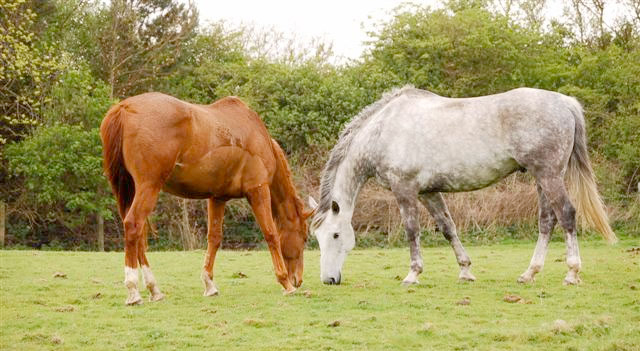
Scotland’s equine industry is growing, and contributes £228 million to the Scottish economy per year (excluding racing); however there is a need for greater regulation and coordination.
Developing an accurate database of the number and location of horses in Scotland would allow for better monitoring of disease, traceability of horse movement, more effective breeding programmes and would address the welfare concerns associated with increased horse numbers.
A recent study published by Scotland's Rural College's (SRUC) Rural Policy Centre, in conjunction with the British Horse Society (BHS) Scotland, provides a ‘snapshot’ of the industry and makes recommendations to the equestrian industry, local authorities and the Scottish Government on how to further develop and strengthen the sector.
One of the report’s authors Gillian McKnight, from the SAC Consulting Division of SRUC commented: “The equine industry makes a big contribution to the rural economy, and has significant potential, with adequate support and guidance, to deliver integrated business and environmental benefits.
“A thriving horse industry means more people, including a high proportion of women, participating in sport, recreation and access to the countryside, which is good for our physical and mental health.”
Helene Mauchlen, Director for BHS Scotland said: “Nearly all legislation pertaining to the horse in Scotland is devolved. In order for our industry to compete fairly with other rural industries when it comes to recognition and funding opportunities we realised that we needed to start the ball rolling on collecting evidence on the value of the equine industry, instead of relying on figures extrapolated from the UK. This scoping report will hopefully point us in the right direction by identifying priorities for future work at the same time as providing a snapshot of where we are.”
The equine industry is the UK's second biggest employer in the rural environment however the development of the industry in Scotland is being hindered by fragmented support for business and a lack of coordination. Many new equestrian businesses are farm diversification projects or small independent businesses and they often struggle to access funding and support on issues such as land management and planning.
The report identifies areas of best practice such as the provision of quality assurance for riding and trekking centres; and it makes several recommendations in order to improve coordination and efficiency across the industry. These include addressing barriers to sector entry and growth, addressing business and land management support issues, quality assurance, and staff training and retention.
